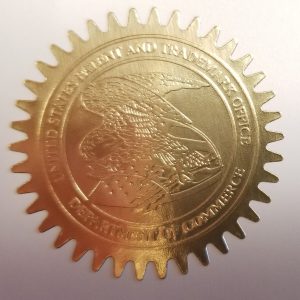Loosing Trademark Rights

Once a trademark has been established, the rights can continue indefinitely as long as the owner continues to use the mark in commerce. However, there are several common methods of losing a trademark including:
- Abandonment;
- Failing to stop others who cause confusion;
- Genericide
- Improper licensing of the rights;
- Improper assignment of the rights; and/or
- A significant change in quality or character of the goods or services.
Abandonment of Trademarks
A trademark owner will lose rights to a trademark through abandonment. The Lanham Act defines “abandonment” as non-use of a mark with the intent to not resume such use. In the event, one of the following occurs a trademark is considered “abandoned”:
- It is no longer in use and there is no intent to resume such use; or
- Some act or omission of the owner causes the mark to become a generic description of the goods or services for which it is used.
Discontinued Use of a Trademark
When a trademark owner discontinues use of their mark in commerce, it is abandoned. However, the owner’s “intent not to resume” use also constitutes abandonment and such an intent may be inferred from circumstances. Non-use of a trademark for three consecutive years is generally evidence of abandonment unless there is substantial contradictory evidence to the contrary.
In 1993, the Los Angeles Dodgers had abandoned their rights to the “Brooklyn Dodgers” trademark because they had not used the name for more than 20 years. Despite an attempt to re-register the trademark in 1981, the court held that the Los Angeles Dodgers had already abandoned it.
“Genericide” of a Trademark
A trademark may become lost through the acts or omissions of the owner which cause the trademark to become descriptive of the good or service. Generic use of a word results when a substantial majority of the public associates that word with the category of goods or services rather than as an indication of a specific product, source or manufacturer. Once a trademark becomes generic, the owner loses their rights in the trademark.
For example, the word “aspirin,” once trademarked, is now a generic word to consumers. To determine whether a trademarked word has become generic, evidence must be presented to show the word is descriptive of the goods or services in the form of dictionaries, consumer surveys, treatment by the media, and/or other evidence that the owner refused to monitor its mark.
Consequences of Abandoning a Trademark
An owner of an abandoned trademark loses their rights in the mark. If they have a registration, the registration is subject to cancellation. The consequences of an abandoned trademark are as follows:
- The mark becomes available for anyone to use it;
- The registration becomes subject to cancellation; and/or
- Any business already infringing upon the mark may be permitted to use it.
An abandoned trademark can be subject to cancellation through a Trademark Trials and Appeals Board (TTAB) proceeding where the an adverse party will be required to prove abandonment and the trademark owner will be given an opportunity to show that the mark was not abandoned.
Trademark questions? Contact one of our attorneys today at 888-472-0020.
